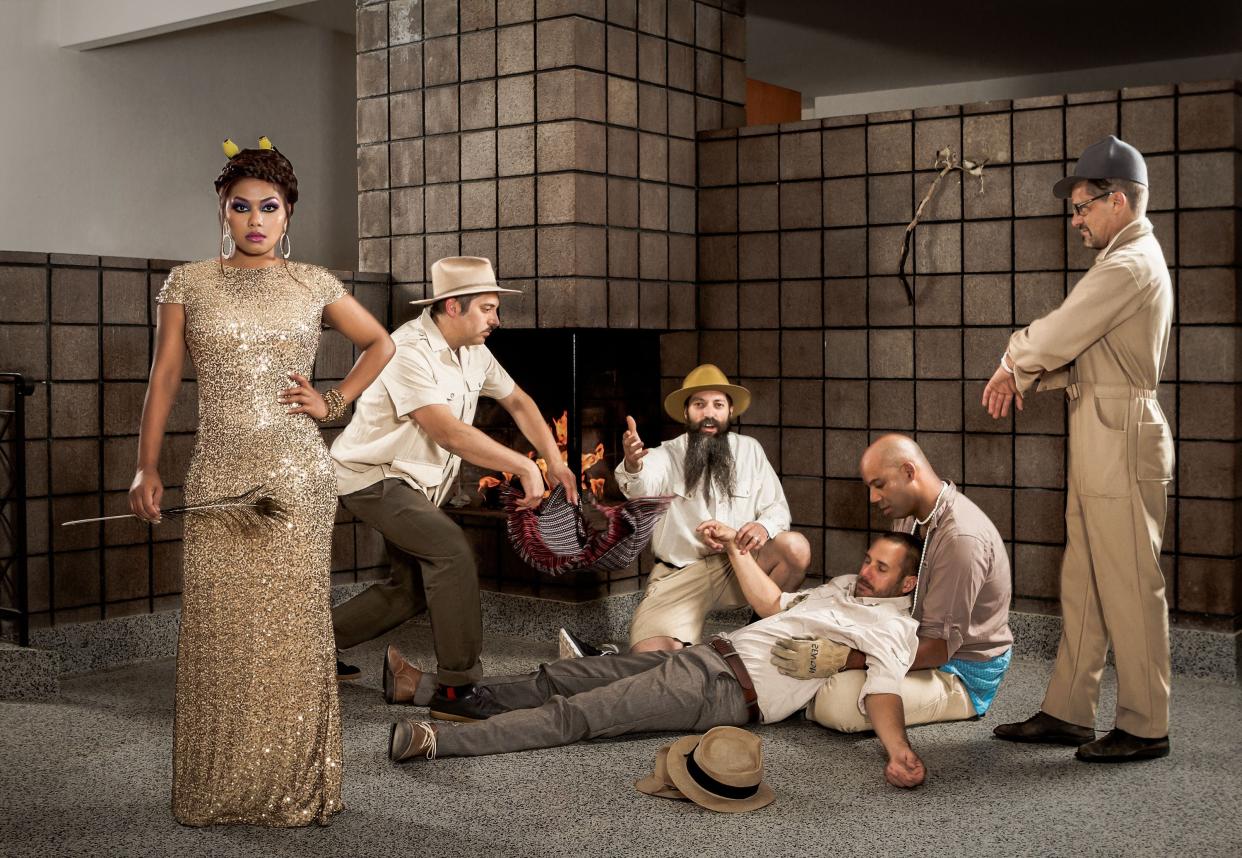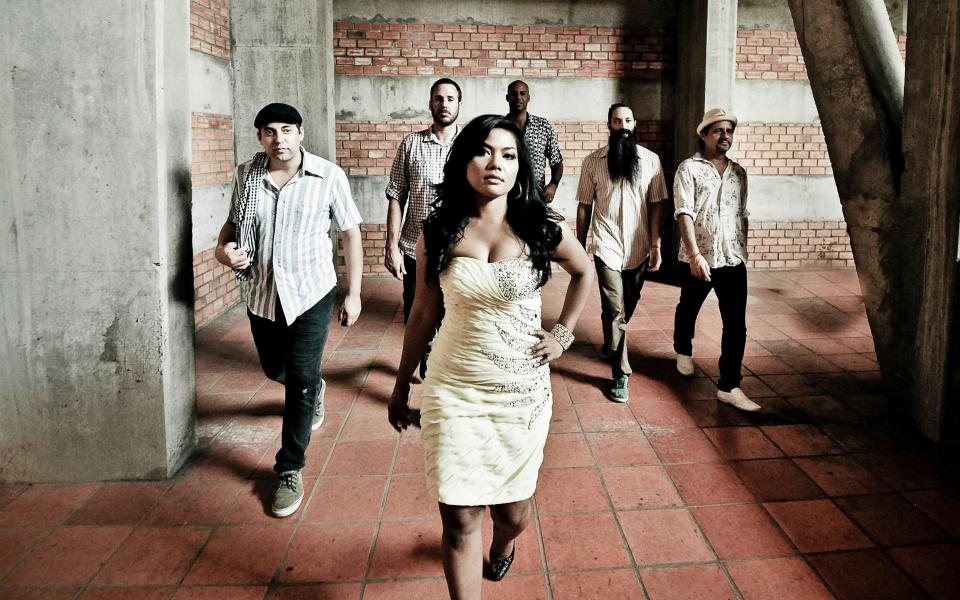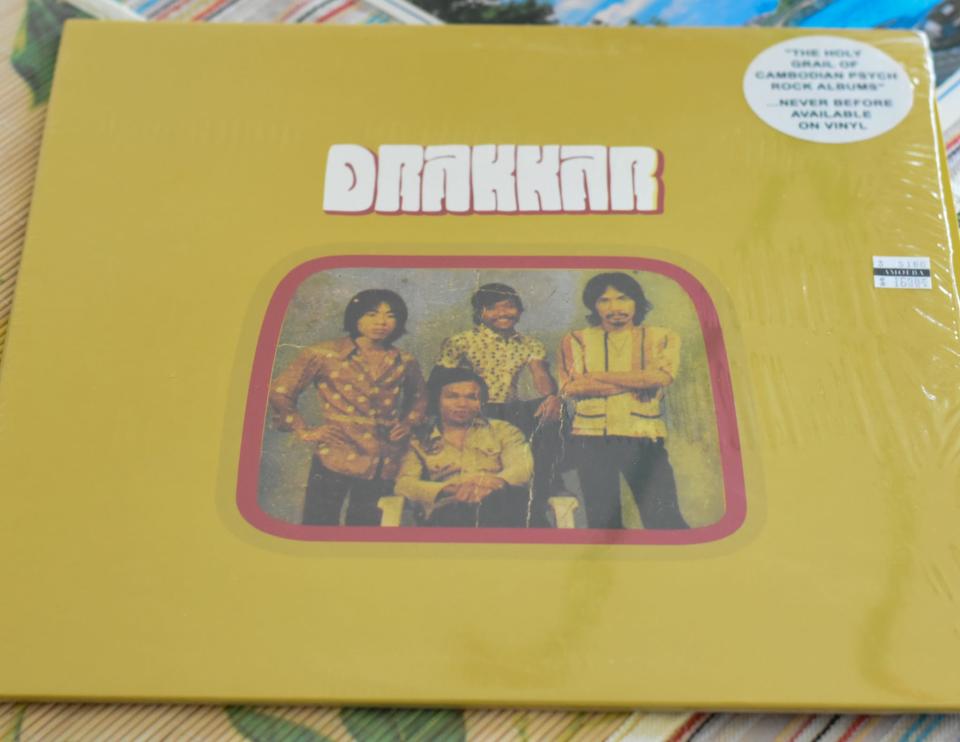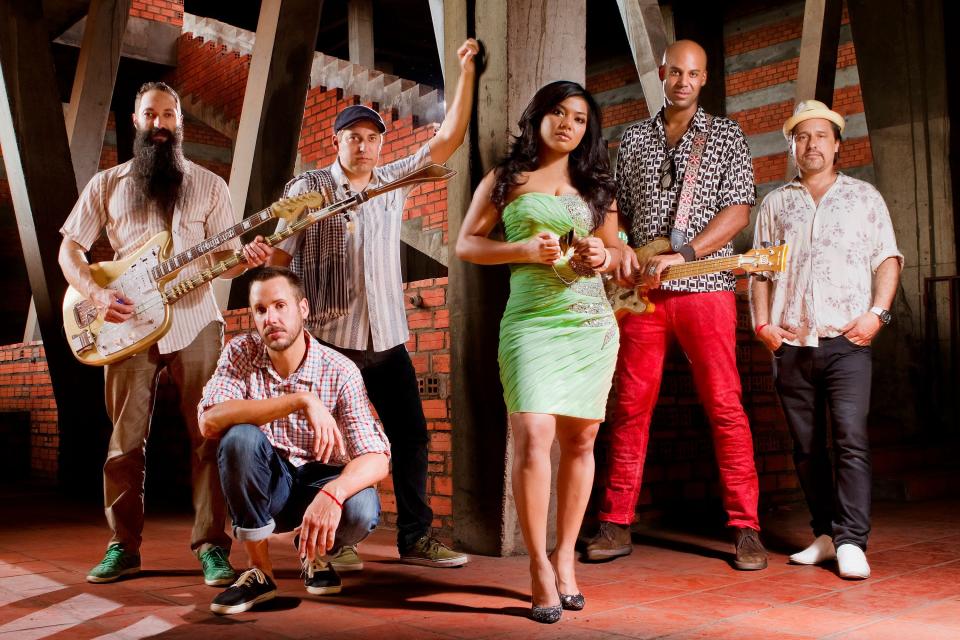Dengue Fever takes its Cambodian rock sound to Pappy and Harriet's

As the popularity of rock 'n' roll expanded during the ’60s, that coolness reached every corner of the globe, including Cambodia.
The rock 'n' roll radio airwaves enjoyed by U.S. armed forces in Vietnam was intercepted by young Cambodians in awe of what they heard. Young singer-songwriters in the country took notice, covering pop music of the western world with a traditional Khmer sound. It was a colorful new pop movement in the Khmer Republic, but would sadly end during the Khmer Rouge period from 1975 to 1979.
In the ’90s, Khmer rock inspired Los Angeles keyboardist Ethan Holtzman during his travels in Cambodia, which led to the formation of the band Dengue Fever in 2001. The band includes his brother Zac Holtzman (guitar), Senon Williams (bass), Paul Smith (drums), David Ralicke (horns) and Cambodian-American vocalist, Chhom Nimol.
Dengue Fever will perform Friday at Pappy and Harriet's.
Since its incarnation, Dengue Fever has released five albums, four EPs, one live recording and a soundtrack for the band's 2007 documentary "Sleepwalking Through the Mekong." The band has also received acclaim from singer Peter Gabriel, Metallica guitarist Kirk Hammett and the Kinks' Ray Davies.

Dengue Fever has performed at venues in Europe, Asia, South America and the United Arab Emirates while also appearing at several music festivals. In 2012, the band performed at the inaugural Desert Daze festival. Williams said the popularity of the music is alluded to embracing different rhythms and melodies and doing something out of the ordinary.
"When I was a kid playing rock music, hip hop and all this other stuff, 'world music' was not necessarily a good thing," Williams said. "I think it's now normal and not considered to be strange or a gimmick. In our early days when people listened to our music or saw us play, they realized we were being authentic and true to ourselves in the interpretation of this music. A lot of bands are now able to mix cultures and rhythms in a sincere way."
Williams estimates the band has toured Cambodia five times and performed in a variety of venues such as cultural centers, open-air venues, universities and schools, temples in the countryside and a free concert in the middle of Phnom Penh. He described the reception in Cambodia as "wild" and every show as "completely unpredictable."
"We've gone as cultural ambassadors and there was a tour funded by the U.S. government," Williams said. We did a lot of educational stuff, but also played some cool places in the middle of the street and a mini-festival just popped up on the fly. During our off-time, we visited sites, made a bunch of friends and ate great food."
Khmer rock is being preserved and reintroduced
According to a 2018 article by Medium, most of the recordings by prominent Khmer rock musicians such as Sinn Sisamouth, Ros Sothea and the band Drakkar were destroyed during the Khmer Rouge's rule. But the world has been reintroduced to the genre thanks to copies of those records purchased as souvenirs by tourists or hidden by Cambodian citizens. Projects such as the Cambodian Vintage Music Archive are tracking down copies and create high-quality digital transfers.

Many of these records have been released on compilations or as full-length albums, and they've become popular with music aficionados around the world. Williams said this resurgence and interest is due to the internet.
"It's not just Khmer music, it's music from around the world," Williams said. "I think you could be into Top 40 and pop music and then all of a sudden you hear (world music) on the radio, and instead of not knowing what that is, you (discover) it through (the music app) Shazam. The next thing you know, you go down this rabbit hole of music you would have never been able to figure out what the heck it was before. I think people at a younger age are being influenced by music from around the world and it's informing their musical tastes."
Dengue Fever hasn't released anything since the 2015 album "The Deepest Lake." Williams said the band toured for two years, spent the following year on a break. Recording sessions for a new album were paused by the COVID-19 pandemic, but were later resumed and a new album will be released next year.
"During the pandemic, we got together to figure out what our future was and then we thought it was silly," Williams said. "We were like, 'We love each other.' We make music, don't need to make any decisions and [we can just] create when and how we feel like creating. The inactivity is the result of not being in a hurry."

The band has performed at Pappy and Harriet's before, and Williams called it "one of my favorite venues in the world."
"A close friend has a cabin that's not too far from Pappy's, so I'm always crashing there whenever we play," Williams said. "We'll always have a late night after Pappy's. There's always the big night sky and the Milky Way galaxy, which is not visible from Los Angeles."
If you go
What: Dengue Fever
When: 8:30 p.m., Friday, Oct. 14
Where: Pappy and Harriet's, 53-688 Pioneertown Road, Pioneertown
How much: $25
More information: pappyandharriets.com
Brian Blueskye covers arts and entertainment for the Desert Sun. He can be reached at [email protected] or on Twitter at @bblueskye.
This article originally appeared on Palm Springs Desert Sun: Dengue Fever takes its Cambodian rock sound to Pappy and Harriet's
